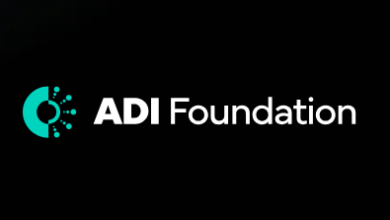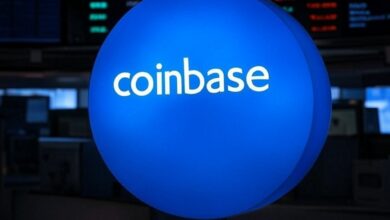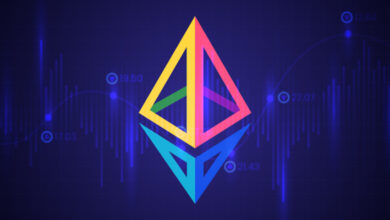Digital Identity on the Blockchain, an R3 perspective

At the heart of any blockchain project is digital identity, whether it is of people or things. Building the blocks on the blockchain starts with identifying who is what and who owns what. As such UNLOCK interviewed Mr. Abbas Ali, the head of digital identity at R3. R3 as most know is an enterprise blockchain software firm with an ecosystem of over 200 members aimed at developing the Corda platform. According to Abbas Ali, “Although R3 and its Corda platform started off in the banking sector with a consortium of five banks five years ago we have been involved in multiple industry verticals including healthcare, telecom, oil and gas as well as others.”
R3 has been tackling the issue of digital identity on the blockchain by utilizing it for KYC purposes (Know your Customer). In traditional know your customer KYC, processes are usually costly, complex, and time consuming because digital identities are managed in silos which means consumers set up multiple accounts on different websites and service providers which is not only inconvenient, with no privacy but also not secure. So according to Ali, “R3 utilizing Corda platform was one of the first to come up with a shared KYC project LEIA II that included more than 14 banks to demonstrate the Corda platform and since then we have developed application with a number of different partners such as Cap Gemini, Gemalto with a focus on KYC for corporate and retail.”
For example, R3 in 2019 teamed up with MasterCard to develop and pilot a new blockchain enabled cross border payments solution. The partnership was seen as providing innovative value added services for customers that would address high process overheads, liquidity management, and lack of standardization process between banks and domestic clearing systems.
According to Ali, R3 has actively been pursuing the digital identity space and this is clear through its stewardship with Sovrin Foundation, a non-profit organization focused on the advancement of self-sovereign identity which includes more than 75 organizations. As Ali states, “We are strong proponents of self-sovereign identity and we have developed Cordentity which is a self-contained CorDapp identity service that integrates Hyperledger Indy, for decentralized identity, with the R3 Corda Platform. This project creates interoperability of two purpose-built ledger technologies, each with a focus on privacy. Corda is designed to enable private transactions and Indy is a ledger built specifically for self-sovereign identity.”
Ali adds, “As a platform, we don’t pick winners, we tend to be agnostic. We endeavor to be the leading decentralized identity provider and are coming out with new announcements soon.” After the interview, R3 announced in May that it had partnered with Kaleido to offer R3’s Corda Enterprise Software on Kaleido’s digital platform. Corda-powered networks are now available through Kaleido’s consortium-as-a-service offering built for organizations looking to accelerate their collaborative transformation efforts across all sectors, including financial services, healthcare, supply chain, transportation, and the public sector. The new Kaleido’s consortium-as-a-service offering provides industry-first digital transformation capabilities to accelerate the business outcomes of decentralized consortium networks. Key capabilities include smart contract management, a full stack of middleware technologies, a multi-party control plane, and shared DevOps.
In terms of pricing, while once Corda was seen as an expensive solution to implement, today R3 has allowed it to become more accessible. As Ali explains, “As an open source platform our pricing is now based on usage in accordance to the value our customers are deriving from it in terms of volume of transactions, previously is was based on an annual license fee, so based on feedback we have moved to pay for use.”
In the MENA region for example R3 is working with MENA Fintech Wethaq platform for the issuance and trading of sukuk securities. R3 is working with Wethaq to build the financial market infrastructure to enable issuers, investors, central banks and regulators to seamlessly transact in Islamic capital markets. Wethaq has been working alongside regulators in several jurisdictions including KSA and UAE to ensure the platform will be fully compliant both from financial and Shariah perspectives. As Ali states, “R3 with Wethaq are developing this sukuk platform and this includes discussions with central bank members in the region.”
According to Ali, “Digital identity on the blockchain is a value driven aim because it adds a layer of privacy and trust. In the consumer space, privacy is a paramount concern especially in the West, Europe and the USA. There is a lot of work happening in terms of standardization.”
He adds, “Digital identity touches upon anything you use in the physical world, whether it is your passport, diplomas, credentials, all will become placed in digital form including your digital identity, so KYC is one use case, but there are also others such as the European commission ESIF framework use case which aims to reduce friction of labor across EU. Here educations institutions are required to issue digital copies of their diplomas.”
In essence, according to Ali, banks are the most likely candidates for digital identity projects especially in the UK and Canada. He believes that digital identity touches every single thing we work with today including healthcare and others.
In the next five years, Ali believes we will be seeing more self-sovereign identity infrastructure take hold in the EU, Estonia, Switzerland even Germany under national identity frameworks. He adds, “We will see federated identity systems with single sign-ons such as with Google, Facebook, a move from silo models to federated systems such as with AppleID.”
Finally Ali believes that identity of the future will neither be global nor national. He explains, “in the next 10 years everything will be digital.”





